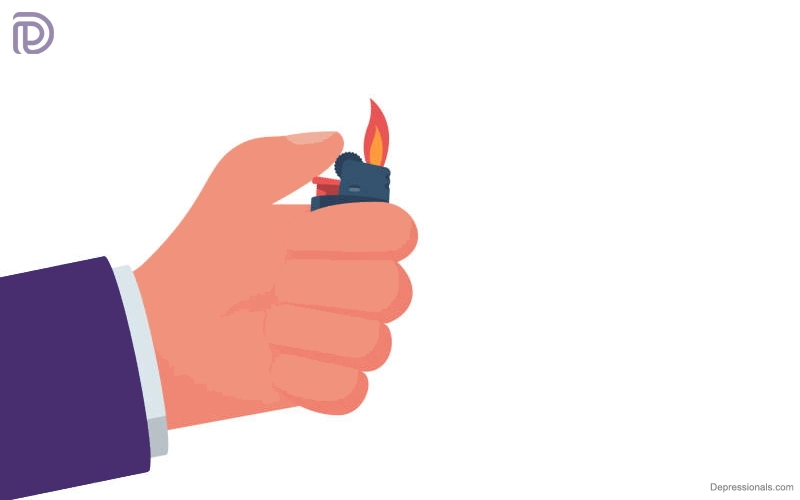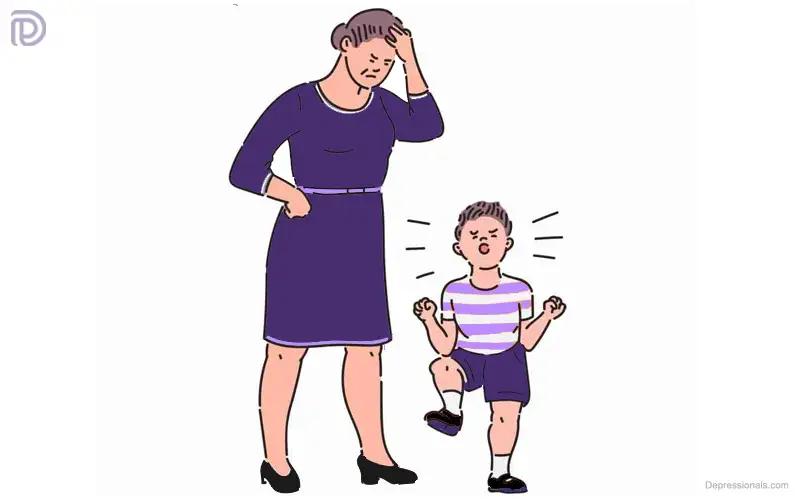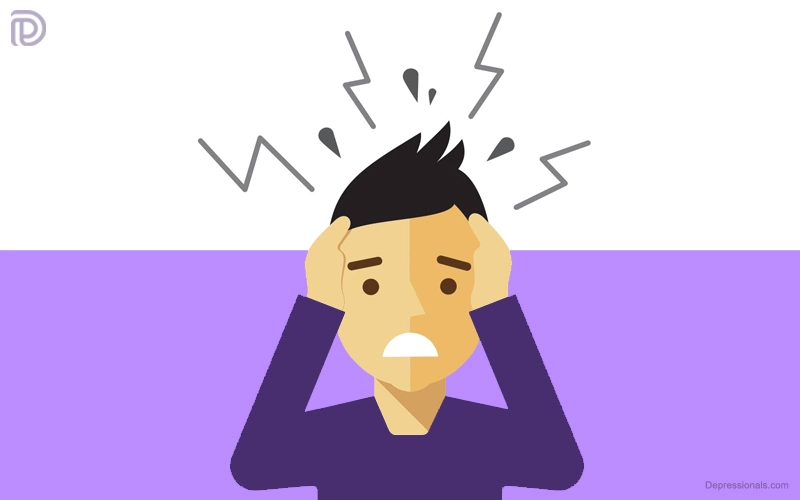What is pyromania disorder?
Pyromania disorder is a type of impulse control disorder defined by an inability to refrain from setting flames. Pyromaniacs are aware that lighting flames are dangerous. However, they can only release their stress, anxiety or excitement by setting fires. They experience a sense of satisfaction or relaxation after starting a fire.
Read: Kleptomania
What type of disorder is pyromania?
Pyromania falls under the category of disruptive, impulse-control and behavior disorders. Persons with these diseases become violent against other people or property.
You may have trouble managing your emotions and conduct if you have one of these illnesses. Everyone has this feeling from time to time. However, persons who suffer from one of these diseases exhibit the following behaviors:
- Lasts a long time
- Happens on a regular basis
- Occurs in a variety of circumstances
- Causes a lot of issues
You’re more likely to develop a disruptive, impulse-control, or conduct problem if you have the following factors:
- Physical abuse
- Sexual abuse
- Harsh parenting
- Parents who have a history of substance abuse
- Parents who have a history of running into difficulties with the law
Pyromania vs. arson
The psychiatric condition pyromania deals with impulse control, but arson is a criminal offense. There is usually a criminal intent behind it, and it is usually done maliciously.
Pyromania is strictly pathological or compulsive, while arson is intentional. In some cases, arson is not an act of violence.
It is possible for an arsonist to suffer from pyromania, but most arsonists are not affected by it. Although they may be socially isolated, they may also have other diagnosable mental illnesses.
Nevertheless, pyromaniacs do not commit arsons. They can often start fires without being criminally liable.
Pyromania and genetics
It is believed that impulsivity has a hereditary component, although research is limited. Therefore, genetics may play a role.
It is not just pyromania that is affected by this. There is a moderate hereditary component to many mental disorders.
We may also be genetically predisposed to impulse control. Several neurotransmitters affect impulse control, including dopamine and serotonin, which are influenced by our genes.
Pyromania in children
Although pyromania symptoms can appear around puberty, it isn’t often diagnosed until about 18 years of age. Several studies suggest pyromania may begin as early as age 3.
It is also important to recognize that children may start fires for a variety of reasons other than pyromania.
Lighting fires or playing with matches is often an experiment or curiosity for children or adolescents. There is nothing abnormal about this. It’s also known as “curious fire-setting.”
Pyromania is often identified as a symptom of ADHD or a conduct disorder if setting fires becomes a problem, or if they cause serious damage.
What are the symptoms of pyromania disorder?
Pyromania is determined by the reasons why someone starts a fire. It’s critical to differentiate between various motives. Lighting flames are seen as a behavior rather than a disease. A person who starts a fire does not always commit a crime.
Although arson is a crime, most arsonists do not suffer from pyromania. Pyromania is a kind of mental illness.
The following pyromania symptoms must be present in order to be diagnosed:
- Deliberately and purposefully starting a fire, on more than one time
- Before setting a fire, you should feel tight or energized
- Having a strong attraction to an obsession with fire and everything related to it
- Setting flames, witnessing fires, or feeling joy, relief or fulfillment
- Becoming a part of the fire-response team
- Setting fires cannot be explained by another psychological condition.
Pyromania is an uncommon illness. In one study of 90 persons who conducted arson more than once, just three matched the criteria for pyromania. Pyromania is not present in people who start fires for the following reasons:
- Monetary gain
- Political beliefs
- To cover a crime
- To make one’s living situation better
- Delusions
- Hallucinations
- Impaired judgment, such as when using drugs or drinking alcohol
Read: Oppositional Defiant Disorder
What are the causes of pyromania?
The actual cause of pyromania is unknown. It’s possible that it has something to do with one or more of the following problems.
- Other psychiatric disorders: Pyromaniacs frequently have co-occurring mental disorders. Anxiety, substance misuse, addiction, depression, attention deficit disorder, mood disorders and learning impairments are some of the possibilities.
- Heredity: Pyromania is an impulsive control disorder. These sorts of diseases appear to have a hereditary component. People who suffer from impulse-control problems such as pyromania seem to be more likely to have relatives who suffer from mental disorders.
- Brain chemicals: Chemicals produced by the brain influence how you think, behave and feel. Pyromania may be more common in those who have a chemical imbalance in their brain.
- Stressors: Pyromania has been related to traumatic experiences like a big loss or child abuse.
- Triggers: Changes in your brain chemistry might be caused by triggers such as a thought or a substance. This may lead you to believe that setting a fire makes you feel wonderful.
Who is at risk for developing pyromania?
Pyromania disorder is an uncommon illness. It hasn’t been researched as thoroughly as other disorders. The following have been linked to Pyromania:
- Being a man
- Intelligence below average
- Mood disorder
- As a child, you were mistreated.
- Attention deficit hyperactivity disorder
- Family stress
Read: Conduct Disorder
Pyromania treatment
If left untreated, pyromania can become chronic, therefore it’s critical to get treatment of pyromania. This illness can go into remission, and it can be managed with a mix of treatments.
There is no one therapy for pyromania that experts recommend. The course of treatment will differ. Finding the ideal one or combination for you may take some time. Among the possibilities are:
- Cognitive-behavioral therapy (CBT) is a type of therapy
- Aversion therapy
- Medications, such as selective serotonin reuptake inhibitors (SSRIs)
- Anti-anxiety drugs (anxiolytics)
- Antiepileptic medications
- Atypical antipsychotics
- Lithium
- Anti-androgens
Cognitive-behavioral therapy has proved to be effective in assisting people in working through their urges and triggers. A doctor can also assist you in developing coping strategies to deal with the urge.
Joint therapy or parental training may be required if a kid is diagnosed with pyromania or fire-setting.
Read: Intellectual Disability
Key message
Pyromania disorder is a mental disorder that is seldom recognized. It’s not the same as starting a fire or arson.
The DSM-5 recognizes it as an impulse control disorder with precise diagnostic criteria, even though the study has been limited due to its rarity.
Seek assistance if you think you or someone you know is suffering from pyromania or is concerned about an unhealthy fixation with fire. There’s nothing to be embarrassed about, and there’s hope for remission.






I have read so many posts about the blogger lovers howeverthis post is really a good piece of writing, keep it up.
Thanks for all your efforts that you have put in this. very interesting information.
I have read so many posts about the blogger lovers however this post is really a good piece of writing, keep it up.
I have read so many posts about the blogger lovers however this post is really a good piece of writing, keep it up
whoah this blog is wonderful i really like reading your articles. Keep up the great paintings! You realize, a lot of people are hunting round for this info, you could help them greatly.
whoah this blog is wonderful i really like reading your articles. Keep up the great paintings! You realize, a lot of people are hunting round for this info, you could help them greatly.
I have read so many posts about the blogger lovers however this post is really a good piece of writing, keep it up
I am no longer certain the place you are getting your information, however great topic. I must spend some time finding out much more or figuring out more. Thanks for great info I used to be on the lookout for this information for my mission.
The information you have provided is very useful to me.